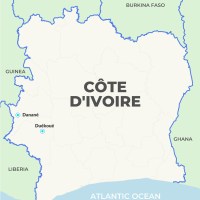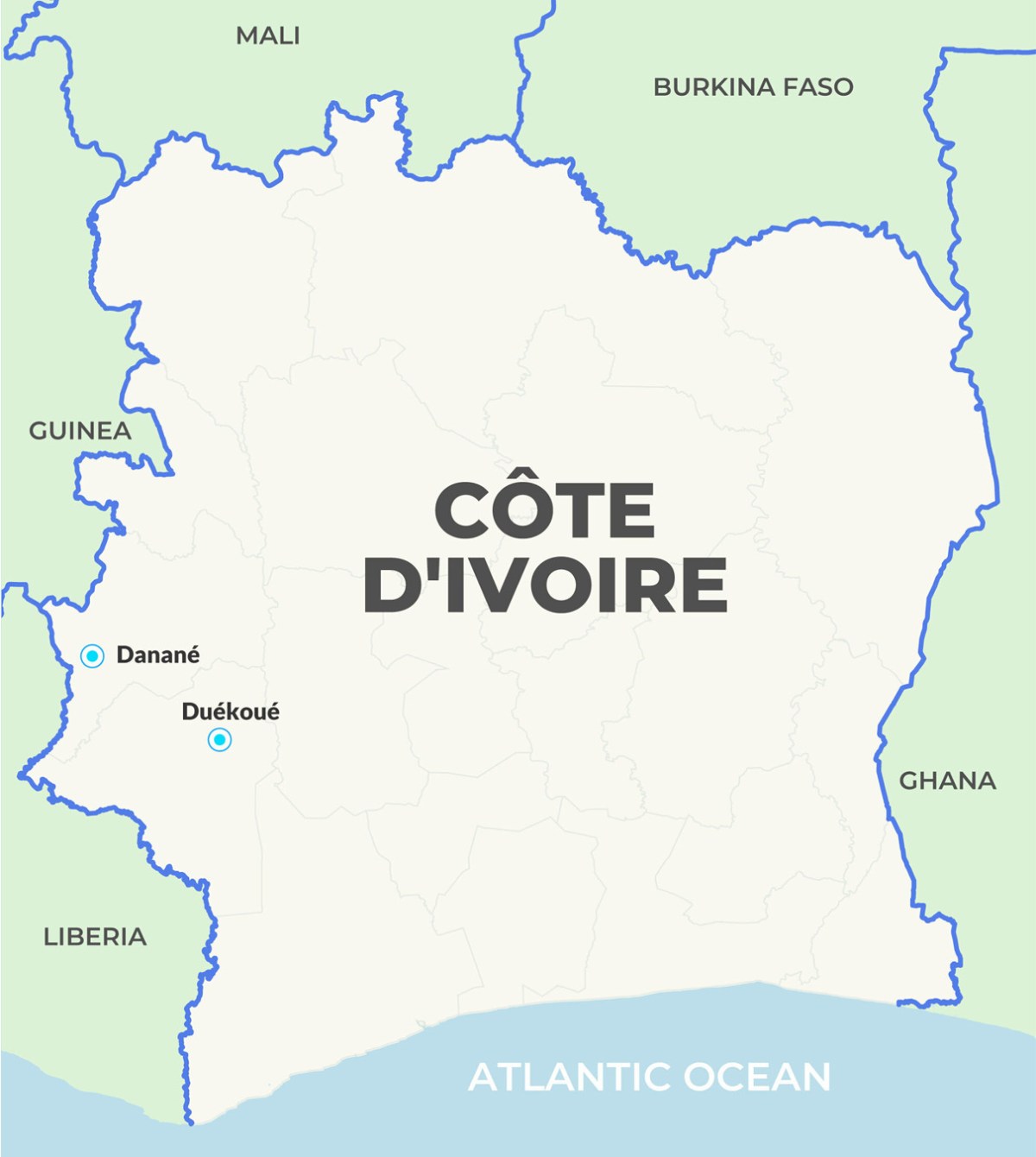Your blood rushes into your ears, muffling people’s screams as machetes slice through the air. You run faster, but you can’t escape the saccharine metallic smell coming at you from everywhere. A sudden burst of pup-pup-pup-pah-pah urges you forward, your feet peddling the air. Bullet casings fall to the ground, sounding like pennies rattling in a tin can.
You veer left, hoping to make it to the Catholic Mission before it’s too late. You wonder if you should have run to the forest instead. But Mom would have gone to the mission if she’s still a—. You cut that thought short before tears slow you down. You run harder. You run. Run. Run!
***
On edge, everyone waited to see if the stalemate would hold or if anarchy would ensue.
In Côte d’Ivoire’s 2010 presidential election, the incumbent had lost but refused to step down. Besides the post-electoral crisis, religious, ethnic, native, migrant, and regional divides simmered below the surface, putting everyone on edge. Knowing how war creates the opportunity to settle scores, we got to work. Our teams on the ground identified eight cities at high risk of experiencing massacres if law and order broke down.
We had received institutional funding to implement peacebuilding initiatives, but the money wasn’t enough to cover programming costs in all eight cities. Left with nothing but bad choices, we had to make the first of many tough decisions. Which cities should receive our support?
Our team ranked the eight identified cities from most at risk of experiencing massacres to the least at risk, and then we stretched our budget. We realized we had enough money to run conflict resolution projects in six cities but not eight. Danane was the sixth city on our list. Duékoué was the seventh.
In the first six cities on our list, we brought the local government administrators, religious leaders, women, young people, and community leaders from across religious, ethnic, and migrant dividing lines together to receive training in mediation, negotiation, and de-escalation. We facilitated town hall meetings to resolve latent conflicts in case war broke out so people would not seize the opportunity to settle scores.
Radio was the main source of news at that time. In the six targeted cities, we produced local radio programs to manage rumors and help people understand national issues, local land conflicts, and community disputes. One popular radio show we produced featured a taxi driver who talked to his passengers about Côte d’Ivoire’s current events. Broadcasting a multitude of perspectives helped foster empathy across dividing lines as did our participatory theater events.
Working with local radio stations, we gave training sessions on Common Ground Journalism, which teaches best reporting practices on highly divisive issues. Journalists learned how to develop reporting plans which highlighted different aspects of a conflict and examined why people think what they think. Journalists gained expertise in explaining conflict-sensitive issues to a general audience. Radio program hosts learned how to run call-in shows and talk shows where all points of view could be heard.
In December 2010, law and order broke down, and war came to Côte d’Ivoire. In Danane, the sixth city on our list, there were no massacres. In Duékoué, the seventh on the list, over 800 people were killed. If we had had more funding, we could have run programming in Duékoué.
When we spoke to the prefect (similar to a mayor) of Danane, he told us that if we hadn’t been in Danane, working with him and the local community, “everything that happened down the road [in Duékoué] would have happened in my town too. If you had been down there, what happened there never would have happened.” Our staff and teams on the ground did the best we could with what we had. Peacebuilding initiatives need more than “what we have.” If we invest more in peacebuilding, we’ll be able to respond to what a particular moment needs instead of with only what we have.
If all of us– our governments, our civil society organizations, our faith leaders, and us in our daily practice– invest in peacebuilding, we’ll build the kind of world that people aspire and deserve to live in, the kind of world we view as just and that makes us all feel safe.


